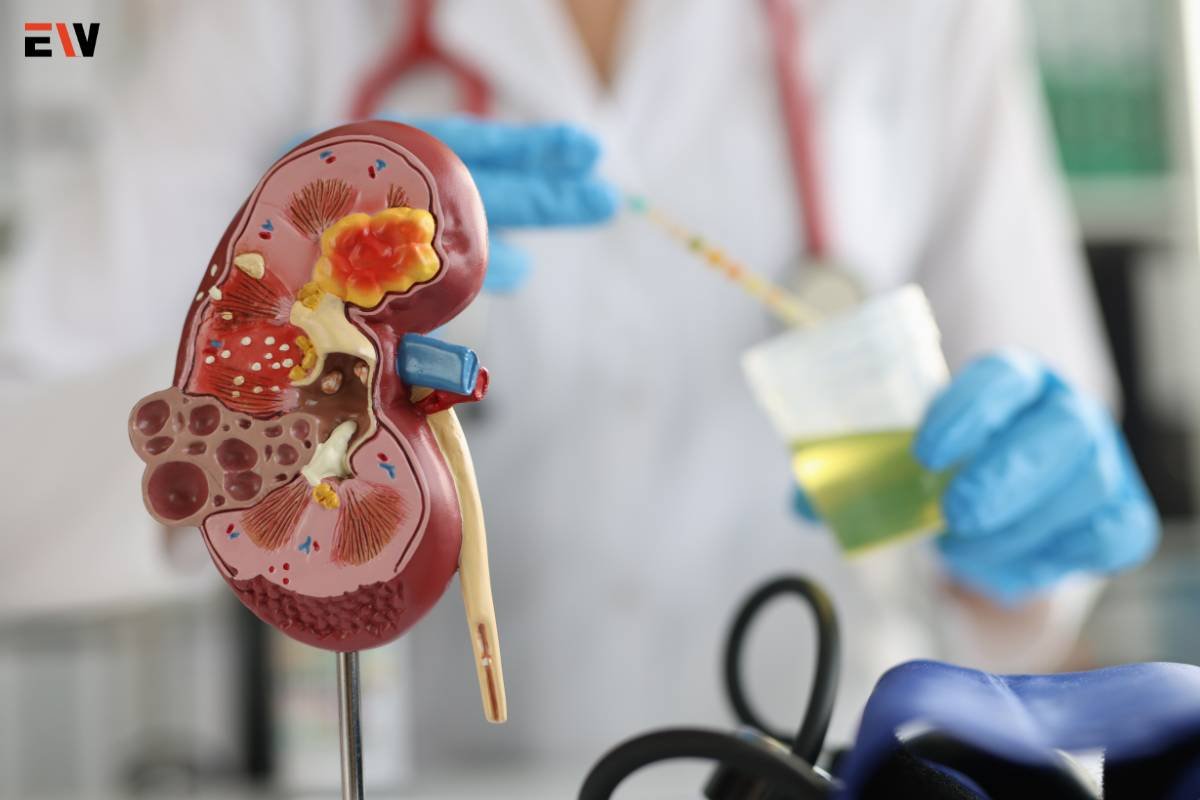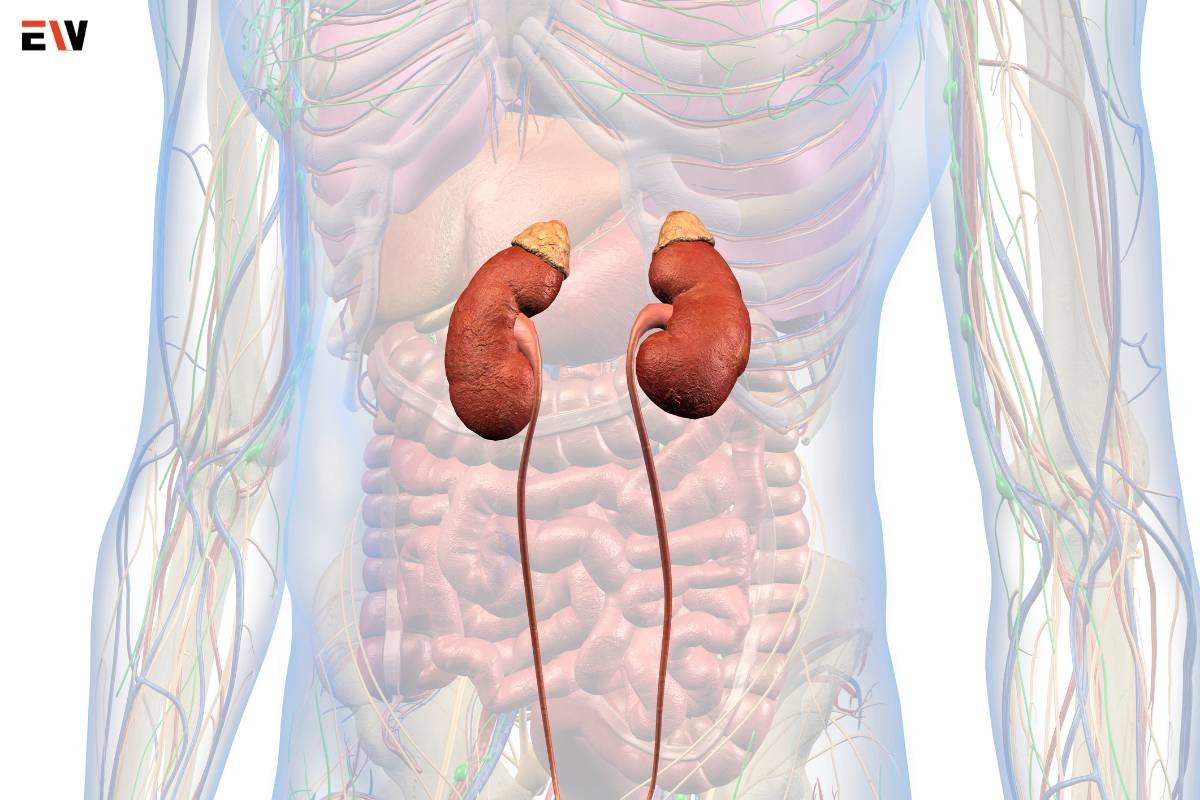IgA nephropathy, also known as Berger’s disease, is a kidney disorder characterized by the accumulation of immunoglobulin A (IgA) deposits in the kidneys. This guide provides an in-depth exploration of its symptoms, shedding light on the signs that may indicate the presence of this condition, its diagnosis, and potential implications for individuals affected by it.
Background on IgA Nephropathy
Definition and Causes
IgA nephropathy is a kidney disorder characterized by the deposition of IgA antibodies in the glomeruli, the tiny filtering units within the kidneys. The exact cause of IgA nephropathy is not fully understood, but it is believed to involve an abnormal immune system response, leading to the accumulation of IgA in the kidneys.
1. Risk Factors
While the precise cause remains elusive, several factors are associated with an increased risk of developing IgA nephropathy:
- Genetics: A family history of kidney disease, including IgA nephropathy, may increase the risk.
- Infections: Respiratory or gastrointestinal infections, particularly those caused by the common bacteria Streptococcus, have been linked to the development or exacerbation of IgA nephropathy.
2. Symptoms
1. Asymptomatic Presentation
It can develop silently without noticeable symptoms, and individuals may remain asymptomatic for an extended period. In such cases, the condition is often detected during routine medical examinations or screenings.
2. Common Symptoms
When symptoms do manifest, they can vary in severity. Common symptoms include:

- Hematuria: The most prevalent symptom is the presence of blood in the urine, which may be visible (gross hematuria) or detected through laboratory tests.
- Proteinuria: Protein leakage into the urine (proteinuria) is another common sign, indicating compromised kidney function.
- High Blood Pressure: Hypertension can develop as a result of kidney damage, contributing to the progression of IgA nephropathy.
- Swelling (Edema): Fluid retention leading to swelling, particularly in the hands and feet, may occur due to impaired kidney function.
- Abdominal or Flank Pain: Discomfort or pain in the abdominal or flank area can be associated with kidney inflammation.
- Fatigue: Generalized fatigue and weakness may be present, reflecting the impact of impaired kidney function on overall well-being.
3. Diagnosis
1. Medical History and Physical Examination
A healthcare professional will begin the diagnostic process by taking a detailed medical history, including any family history of kidney disease or related conditions. A physical examination may reveal signs such as swelling or elevated blood pressure.
2. Urinalysis
Urinalysis is a crucial diagnostic tool. The presence of hematuria and proteinuria in the urine provides significant indicators of kidney dysfunction. Microscopic examination of the urine can reveal red or white blood cells, further supporting the diagnosis.
3. Blood Tests
Blood tests, including serum creatinine and blood urea nitrogen (BUN) measurements, help assess kidney function. Elevated levels of these markers may suggest impaired kidney function.
4. Kidney Biopsy

A definitive diagnosis often requires a kidney biopsy. This procedure involves removing a small sample of kidney tissue for microscopic examination. A biopsy helps confirm the presence of IgA deposits and assess the degree of kidney damage.
4. Complications and Long-Term Effects
1. Progression to Chronic Kidney Disease
It can progress over time, leading to chronic kidney disease (CKD). The severity and rate of progression vary among individuals. Timely diagnosis and appropriate management are crucial to slowing or preventing the advancement of the disease.
2. Increased Risk of End-Stage Renal Disease (ESRD)
In some cases, it can lead to end-stage renal disease, where the kidneys’ ability to function is severely compromised. Individuals with ESRD may require dialysis or kidney transplantation to sustain life.
3. Other Complications
- High Blood Pressure: Persistent hypertension associated with it can contribute to cardiovascular complications, such as heart disease and stroke.
- Protein-Energy Wasting: Progressive kidney dysfunction may lead to protein-energy wasting, a condition characterized by muscle and fat loss.
5. Treatment and Management
1. Medications
- Angiotensin-converting enzyme (ACE) Inhibitors and Angiotensin II Receptor Blockers (ARBs): These medications help manage blood pressure and reduce proteinuria, slowing the progression of kidney damage.
- Immunosuppressive Therapy: In some cases, immunosuppressive medications may be prescribed to modulate the immune response and reduce inflammation in the kidneys.
2. Lifestyle Modifications
- Dietary Changes: Limiting salt intake and adopting a kidney-friendly diet may be recommended to manage blood pressure and reduce strain on the kidneys.
- Regular Exercise: Engaging in regular physical activity can support overall health and contribute to better blood pressure control.

Exploring Foods with 0 Carbohydrates: A Guide to Low-Carb Eating
For individuals adhering to a low-carb or ketogenic diet, understanding and identifying foods with 0 carbohydrates are pivotal for meal planning and maintaining dietary goals.
3. Monitoring and Follow-Up
Regular monitoring of kidney function through blood and urine tests is essential for individuals with IgA nephropathy. Close follow-up with healthcare providers allows for timely adjustments to the treatment plan and early intervention if complications arise.
6. Lifestyle Strategies for Individuals
1. Dietary Modifications
- Limiting Sodium Intake: Restricting sodium helps manage fluid balance and blood pressure, reducing strain on the kidneys.
- Protein Restriction: In cases of advanced kidney disease, moderating protein intake may be advisable to ease the kidneys’ workload.
2. Blood Pressure Management
Maintaining optimal blood pressure is crucial. Regular monitoring and adherence to prescribed antihypertensive medications are key components of effective management.
3. Smoking Cessation

Smoking can exacerbate kidney damage and increase the risk of cardiovascular complications. Quitting smoking is a proactive step toward improving overall health and kidney function.
8. Research and Emerging Therapies
Ongoing research is focused on identifying novel therapeutic approaches for IgA nephropathy. Investigational treatments may target specific pathways involved in the disease process, aiming to slow progression and preserve kidney function.
Conclusion
It presents a complex interplay of immune system dysfunction and kidney pathology. Recognizing the symptoms, obtaining an accurate diagnosis, and implementing timely interventions are crucial for managing the condition and mitigating potential complications. While there is currently no cure for IgA nephropathy, advances in research and a multidisciplinary approach to care offer hope for improved outcomes and a better quality of life for individuals affected by this kidney disorder.










